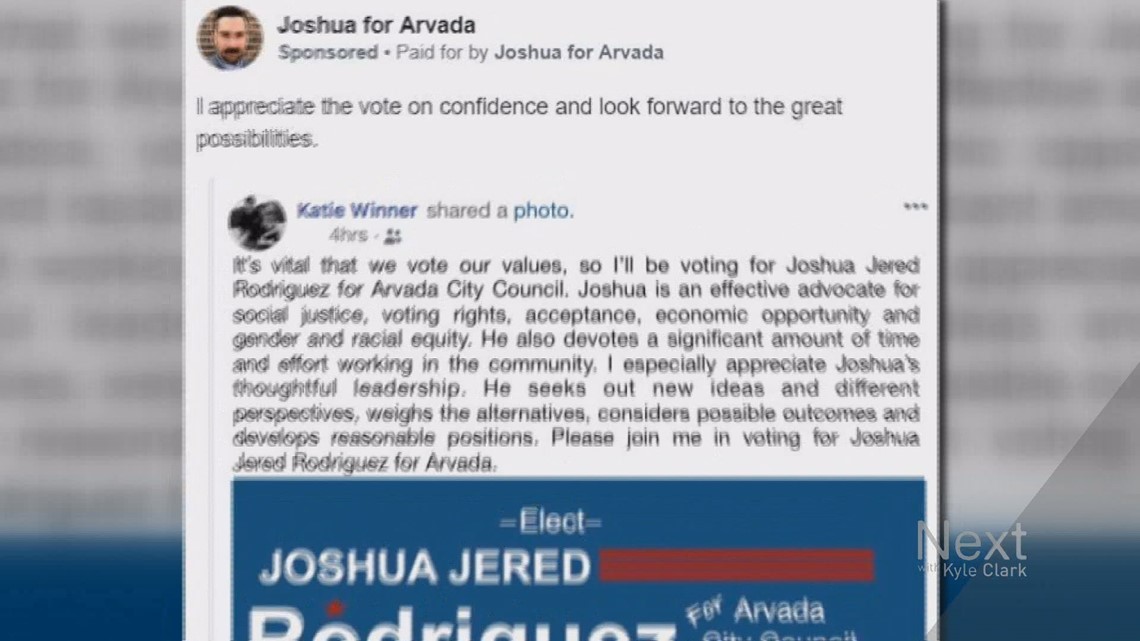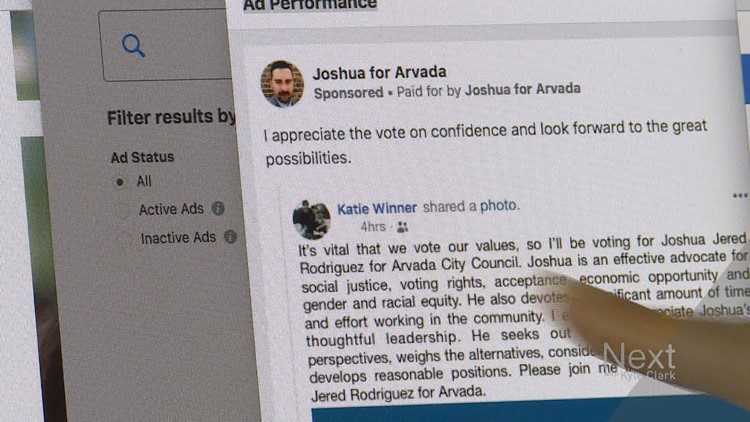ARVADA, Colo. — Thanks, Russia. Because of you, Facebook learned transparency.
Just like on TV and radio, political ads on Facebook will now come with information about who paid for the ads, how much was spent on the ads and who those ads reached.
The added transparency is a result of a Russian company inundating Facebook feeds with sponsored content during the 2016 election.
The Facebook and Instagram political ad search allows you to search for ads based on the page's name, candidate or issue.
It will show you the content of the paid ad and who paid for it dating back seven years.
Katie Winner, an Arvada resident, used the new search tool and found what she thought was a fake ad.
"I said, 'Oh my gosh, I did not write that,'" Winner said. "What it said was that I was endorsing this candidate's candidacy for Arvada City Council."
Winner has been outspoken online about the candidacy of Joshua Rodriguez, who is running for Arvada City Council. She said she responds to his posts on Next Door and Facebook, correcting misinformation.
"It was pretty well known on Next Door and Facebook that I didn't support his candidacy and I never would," said Winner.
Using the new Facebook search tool, she looked up "Joshua for Arvada" to see his paid political ads and saw one that included a post from her.


"I do not endorse this candidate for Arvada City Council District Four. I never would," Winner said. "In fact, I never wrote those words about any candidate, and there are a lot of candidates in the race on the ballot this November 2018 that I would endorse."
She looked through her activity log on Facebook and did not see any evidence of her account being compromised. And she hasn't found a duplicate account made to look like hers.
"My account was not spoofed," said Winner. "I've done some digging myself and I can't find a mirror page about me."
Next reached out to Rodriguez by phone last week. He said that he was "catfished," that a profile with the name "Katie Winner" reached out to him on Facebook Messenger asking for money in return for a post endorsing him on Facebook.
When we asked for screenshots of that conversation, he said he wanted to consult an attorney and get back to us. He has since stopped returning calls and texts, including a voicemail and text message on Tuesday.
Next reached out to Facebook to see what it could tell us about the ad and any catfishing.
"We're grateful when people report content that may be suspicious – and that's exactly what happened here. During the investigation, we learned that the advertiser's Page and ad are no longer active on Facebook and we plan to blur the ad in the archive since it violates our policies. We also continue to do more to enforce our ads policies, including adding more reviewers, making automation to detect scams better and improving reporting abilities. Enforcement is never perfect, but we'll never stop working to get there," said Facebook Spokeswoman Beth Gautier.
The ad violated Facebook policies because Facebook doesn't allow political ads to boost a shared post or a screenshot of a shared post.



